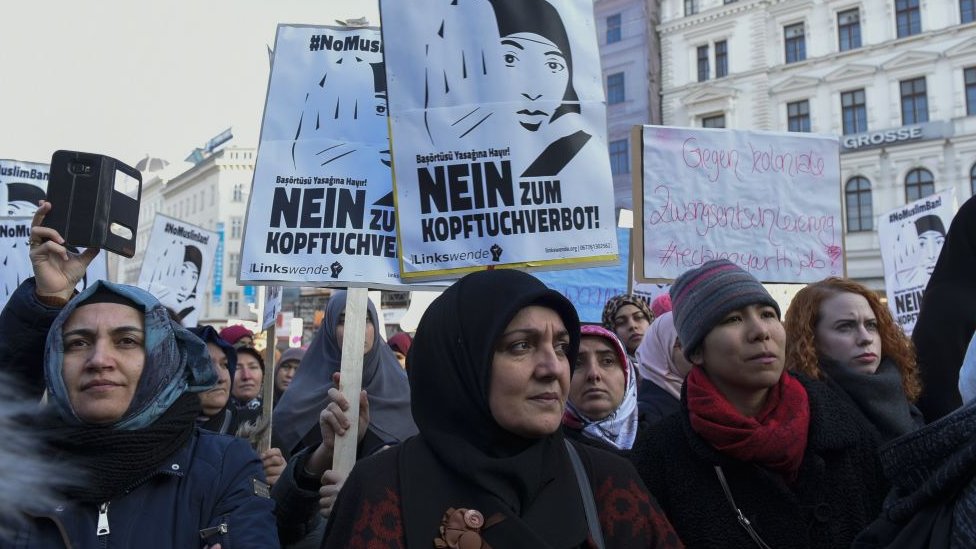
Austria court overturns primary school headscarf ban
Austria's constitutional court has struck down a law prohibiting primary school children from wearing specific religious head coverings.
It said the law was aimed at the Islamic headscarf and breached rights on religious freedom.
The law was passed during the previous coalition government in which the conservative People's Party was allied with the far-right Freedom Party.
The court said the law could lead to the marginalisation of Muslim girls.
It also rejected the government's argument that the prohibition could protect girls from social pressures from classmates, saying it penalised the wrong people.
It said, if necessary, the state needed to draw up legislation to better prevent bullying on the grounds of gender or religion.
The legislation, which came into force last year, did not specify that headscarves were banned but instead proscribed the wearing of "religious clothing that is associated with a covering of the head" for children up to the age of 10. The government had itself said that head coverings worn by Sikh boys or the Jewish skullcap would not be affected.
The court decided that the ban was in fact aimed at Muslim headscarves.
"The selective ban... applies exclusively to Muslim schoolgirls and thereby separates them in a discriminatory manner from other pupils," court President Christoph Grabenwarter said.
- Austria backs green agenda with new coalition deal
- Austria's new justice minister hit by hate speech
Education Minister Heinz Fassman said he took note of the judgment but added: "I regret that girls will not have the opportunity to make their way through the education system free from compulsion."
Austria's Islamic Faith Community, which represents the country's Muslims and brought the legal challenge, welcomed the ruling.
 IMAGE COPYRIGHTGETTY IMAGES
IMAGE COPYRIGHTGETTY IMAGES
image captionThe wearing of Islamic headscarves has been a controversial topic in Austria
"Ensuring equal opportunities and self-determination for girls and women in our society is not achieved through bans," it said in a statement.
When the legislation was first proposed in 2018, Chancellor Sebastian Kurz said the goal was to "confront any development of parallel societies in Austria".
Vice-Chancellor Heinz Christian Strache, of the Freedom Party, said the government wanted to protect young girls from political Islam.
The ban came into force in May 2019, just days after Mr Strache was forced to resign after being secretly filmed offering public contracts to a woman posing as a Russian oligarch's niece.
The People's Party is now in coalition with the Green Party, but the government had still intended to extend the headscarf ban up to the age of 14.
The coalition's current programme stipulates that children should grow up "with as little coercion as possible". The only example it gives is the wearing of headscarves.

